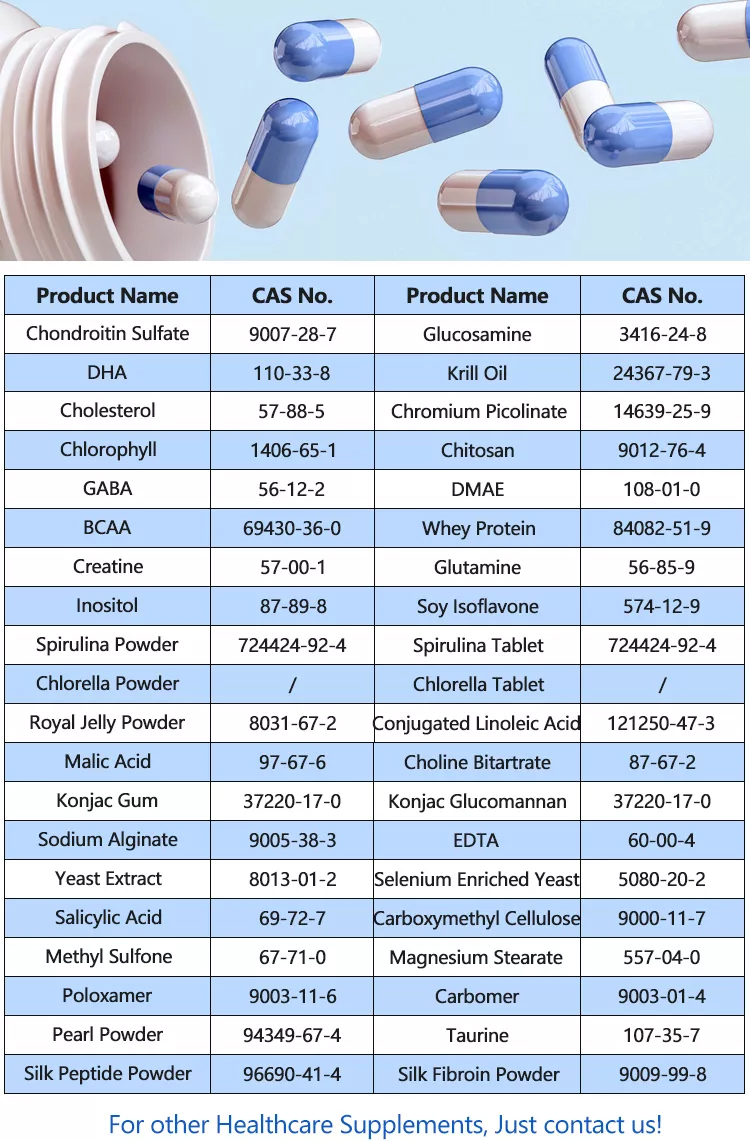Propolis powder is a natural substance produced by bees from plant resins, beeswax, and their own secretions. Bees use it to seal and protect their hives from external threats like bacteria and fungi. Propolis has been used for its potential health benefits for centuries, and it has gained attention for its various therapeutic properties. Here are some of the potential efficacy and effects of propolis powder:
Antimicrobial Properties: Propolis is known for its strong antimicrobial properties. It contains compounds that can inhibit the growth of bacteria, viruses, and fungi. This makes it useful for boosting the immune system and potentially fighting infections.
Anti-Inflammatory Effects: Propolis has anti-inflammatory properties that can help reduce inflammation in the body. This makes it potentially useful for conditions involving chronic inflammation, such as arthritis.
Antioxidant Activity: Propolis is rich in antioxidants, which can help protect the body from oxidative stress and free radicals. Antioxidants are essential for maintaining overall health and preventing various diseases.
Wound Healing: Propolis has been used for wound healing due to its ability to stimulate tissue regeneration and promote the healing process. It may be applied topically to minor cuts, burns, and skin irritations.

Dental Health: Some oral care products and mouthwashes contain propolis for its potential benefits in preventing dental cavities and gum diseases. It can inhibit the growth of harmful oral bacteria.
Immune System Support: Propolis may help support the immune system and improve overall health. It can stimulate the production of immune cells and enhance the body’s defense mechanisms against infections.
Cough and Cold Relief: Some people use propolis to alleviate the symptoms of the common cold and respiratory infections. It may help soothe a sore throat and reduce coughing.
Anti-Cancer Properties: While more research is needed, some studies have suggested that propolis may have anti-cancer properties. It can inhibit the growth of cancer cells and induce apoptosis (cell death) in some cases.
Skin Care: Propolis is often used in skincare products due to its potential benefits for skin health. It can help with acne, inflammation, and skin rejuvenation.
Allergies: Some individuals use propolis to alleviate allergies. It may have a calming effect on the immune system and reduce allergic responses.
It’s important to note that the effects of propolis powder can vary depending on its source, quality, and concentration. Furthermore, while many people find it beneficial, some individuals may be allergic to propolis or experience side effects. As with any natural remedy, it’s advisable to consult with a healthcare professional before using propolis for medicinal purposes, especially if you have allergies or are taking medications. Also, consider discussing potential interactions with your healthcare provider.
Adverse effects of Propolis Powder
Propolis is a resinous substance that bees collect from plants and mix with their saliva and beeswax to create a natural adhesive and antimicrobial substance that they use to seal their hives and protect against pathogens. Propolis has been used for various health purposes, including as a dietary supplement. While propolis is generally considered safe for most people, there can be adverse effects or allergic reactions in some individuals. Here are some potential adverse effects of propolis powder:
Allergic Reactions: Some people may be allergic to propolis. Allergic reactions can range from mild symptoms like itching, redness, and swelling to more severe symptoms, including difficulty breathing and anaphylaxis. If you are allergic to bee products, such as honey or bee stings, you may be more likely to be allergic to propolis.
Skin Irritation: Topical application of propolis may cause skin irritation, including redness, itching, or a rash. This can be particularly relevant if you’re using propolis in cosmetic products or homemade skincare remedies.
Gastrointestinal Upset: In some cases, oral consumption of propolis, especially in large amounts, may lead to gastrointestinal upset, such as stomach cramps, diarrhea, or nausea.
Asthma Exacerbation: In individuals with asthma, propolis exposure may trigger or exacerbate asthma symptoms. If you have asthma or other respiratory conditions, it’s essential to be cautious when using propolis.

Drug Interactions: There’s a possibility of propolis interacting with certain medications, such as anticoagulants (blood thinners) or drugs that affect the liver’s function. If you are taking medications, consult with a healthcare professional before using propolis to ensure there are no potential interactions.
Pregnancy and Breastfeeding: There is limited information on the safety of propolis during pregnancy and breastfeeding. It’s generally recommended that pregnant and breastfeeding individuals avoid propolis to prevent any potential risks to the developing fetus or breastfeeding infant.
Dental Health: Propolis can potentially stain teeth, so it’s advisable to be cautious when using propolis-containing products if you’re concerned about dental aesthetics.
To minimize the risk of adverse effects from propolis powder, consider the following:
1.Start with a small dose to test for any allergic reactions or adverse effects.
2.If you have known allergies to bee products, it’s best to avoid propolis altogether.
3.Consult with a healthcare professional, especially if you have underlying health conditions or are taking medications.
4.Be mindful of the source and quality of the propolis product you are using, as purity and potency can vary.
5.If you experience any adverse effects while using propolis, discontinue its use and seek medical attention if necessary.
As with any dietary supplement or natural remedy, it’s essential to use propolis cautiously and responsibly, and if you have any concerns or experience adverse effects, consult a healthcare professional.
